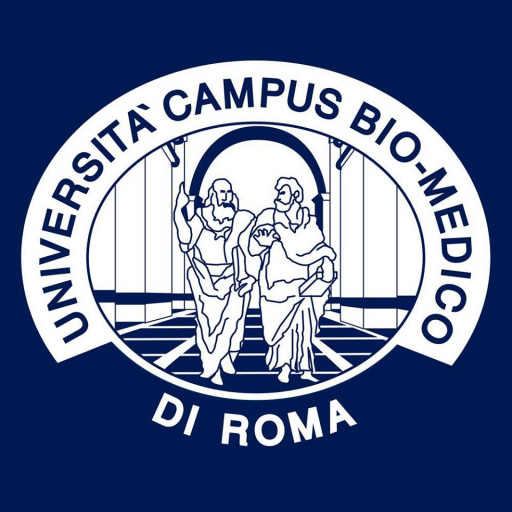The Bachelor of Nutrition at the University of the Sunshine Coast offers students a comprehensive education in the science of human nutrition, focusing on promoting health and well-being through dietary understanding and intervention. This program is designed to equip students with the necessary knowledge and practical skills to work effectively in various health-related settings, including clinical, community, and industry contexts. Throughout the degree, students explore fundamental disciplines such as biology, chemistry, food science, and human physiology, building a strong foundation for understanding how nutrients impact the human body.
The curriculum emphasizes evidence-based practice, critical thinking, and professional communication, preparing graduates to assess nutritional needs and develop tailored dietary plans. Students engage in contemporary topics like public health nutrition, food safety, sustainable food systems, and the role of nutrition in managing chronic diseases such as diabetes and cardiovascular conditions. The program also offers opportunities for practical experiences through internships, placements, and projects with industry partners, enabling students to apply their learning in real-world scenarios.
Additionally, the program addresses emerging areas such as nutrition in sports, mental health, and the role of nutrition in longevity and aging. Students have access to state-of-the-art laboratories and learn to utilize the latest technologies and nutritional analysis tools. The degree is ideal for those aiming to pursue careers as dietitians, nutritionists, or health promotion specialists, or to continue their education through postgraduate studies. Graduates of the Bachelor of Nutrition at USC are well-prepared to contribute to improving individual and community health, advocating for healthy eating practices, and supporting policy development in the health and nutrition sectors. The program emphasizes sustainable, ethical practices and encourages students to consider the social and environmental impacts of food choices and nutrition interventions.
The Bachelor of Nutrition at the University of the Sunshine Coast offers a comprehensive and flexible program designed to equip students with the essential knowledge and skills needed to promote health and well-being through optimal nutrition. This degree combines theoretical foundations with practical applications, preparing graduates for diverse careers within the health and wellness industries. Throughout the course, students explore a wide range of topics including human nutrition, food sciences, dietary assessment, community nutrition, and evidence-based practice. The curriculum emphasizes current scientific research, critical thinking, and professional communication, ensuring graduates are capable of developing individualized nutrition plans and providing sound advice to diverse populations. Students have opportunities to engage in practical placements, gaining real-world experience in clinical, community, and industry settings, which enhances their employability and professional competence. The program also focuses on public health initiatives, nutritional interventions, and the role of nutrition in preventing chronic diseases such as diabetes, heart disease, and obesity. In addition to core nutrition content, students can choose electives to tailor their degree towards areas like sports nutrition, food innovation, or health promotion. Faculty members are experienced professionals and researchers committed to mentoring students and fostering an innovative learning environment. With a strong emphasis on evidence-based practice and professional ethics, the Bachelor of Nutrition prepares graduates to pursue careers in clinical nutrition, community health, food industry consultancy, or further studies in health sciences. The university’s modern facilities, access to cutting-edge laboratories, and participation in research projects ensure a dynamic and engaging educational experience. Graduates of this program emerge as competent nutrition professionals, ready to make meaningful contributions to individual and community health outcomes.
- Year 12 or equivalent
- Year 12 English, Maths and one science subject are advocated.
The University of the Sunshine Coast offers a Bachelor of Nutrition degree program that provides students with comprehensive knowledge and practical skills necessary for a successful career in the field of nutrition and dietetics. Funding options for students undertaking this program are designed to support a diverse range of backgrounds and financial situations. Domestic students may be eligible for government financial aid programs such as Commonwealth Supported Place (CSP), which subsidizes tuition fees, significantly reducing the financial burden of higher education. In addition, students can access scholarships specifically aimed at students pursuing health sciences, including those offered by the University of the Sunshine Coast as well as external organizations. These scholarships often recognize academic excellence, financial need, or commitment to community service, and application procedures typically open early in the academic year. International students enrolling in the Bachelor of Nutrition program are required to pay full international tuition fees, which vary depending on the program duration and specific course load; however, some external scholarships and financial aid options may still be available, depending on eligibility criteria. Students are encouraged to explore loan options such as Australian government loans or private financial institutions to facilitate their studies. The university's financial services and student support centers provide detailed advice on managing tuition payments, installment plans, and financial planning to help students sustain their studies without undue financial stress. Furthermore, work-study programs or part-time employment opportunities offered both on and off-campus can assist students in funding their education while gaining valuable work experience. The university promotes awareness of financial literacy and effective budgeting early in the course to enhance students' ability to manage their educational expenses responsibly. Ultimately, the university aims to make the Bachelor of Nutrition program accessible to students from various financial backgrounds by offering a combination of government aid, scholarships, flexible payment options, and employment support, ensuring that students can focus on their academic and professional development in the health sciences sector.
The Bachelor of Nutrition at the University of the Sunshine Coast is a comprehensive undergraduate program designed to prepare students for careers in the field of nutrition and dietetics. The program provides students with an in-depth understanding of human nutrition, the scientific principles underpinning diet and health, and practical skills essential for promoting healthy lifestyles and managing nutritional issues. Throughout their studies, students explore various aspects of nutrition, including nutritional biochemistry, physiology, public health nutrition, food sciences, and counseling techniques. The curriculum is structured to blend theoretical knowledge with practical application, often involving placements or internships in community health settings, hospitals, or food industries. This hands-on experience ensures that graduates are ready to enter the workforce with real-world skills and a solid understanding of current industry practices. The program also emphasizes evidence-based approaches and encourages critical thinking about dietary guidelines, health promotion strategies, and nutritional interventions. Students have access to state-of-the-art facilities, including laboratories equipped for food analysis and nutritional research. The University of the Sunshine Coast is committed to supporting students throughout their academic journey, offering various student services, academic support, and opportunities for engaging in research projects. Career pathways for graduates include roles as dietitians, nutrition educators, community health workers, research dietitians, wellness consultants, and roles in food industry regulation or policy development. The program is often tailored to meet the requirements of relevant accreditation bodies, ensuring that graduates are eligible to become accredited practitioners in nutrition and dietetics upon completing additional professional training if required. The university promotes a collaborative learning environment, encouraging teamwork, communication skills, and ethical practice, all vital for successful careers in nutrition. Students may also have opportunities to participate in national and international conferences, seminars, and workshops, which help broaden their professional networks and stay updated with the latest research and trends in nutrition. Overall, the Bachelor of Nutrition from the University of the Sunshine Coast aims to develop well-rounded, knowledgeable, and skilled nutrition professionals equipped to make a positive impact on individual and community health through evidence-based nutritional care and education.







